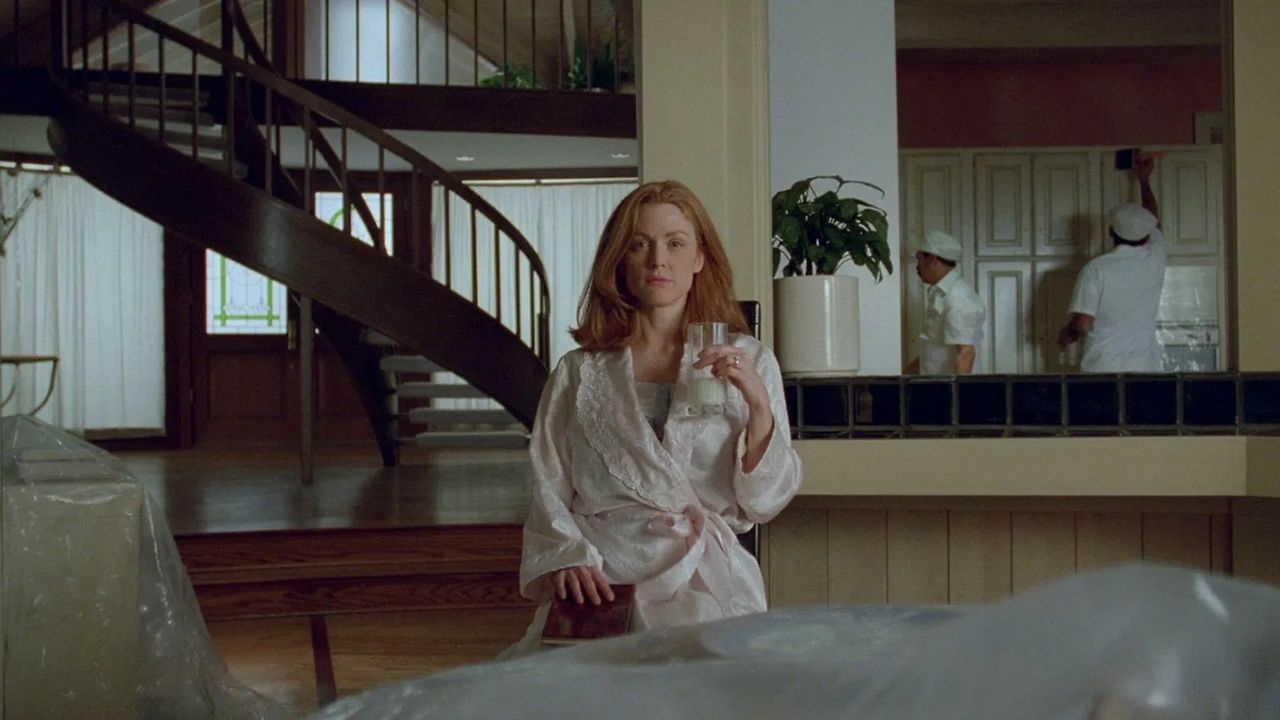Carol’s journey has a congruent analog in the tradwife movement, in which women fetishize a traditional, nuclear homemaker lifestyle, much like the one Carol leads when we first meet her, as a rejection of latter-day, “lean-in” feminism. The theoretical attraction is the same as what motivates Carol to move into a hermetically sealed igloo: the ‘prize’ for rejecting the world is the tacit comfort of surrender; handing the keys to your life to someone else and watching the world become a smaller, more distant threat—even if it means you’re alone.
“As cancer patient Barbara Boggs Sigmund puts it, ‘We humans would rather accept culpability than chaos,’” Haynes writes in the liner notes of the 2001 DVD release of Safe. “And in our surrender to that blame, something very vulnerable in us is freed, protected by the cage we are placed in. Our safety comes from feeling both defended from the world outside while at the same time freed from the burden of autonomy.”
Safe is not explicitly political, but because the human body is inherently politicized, the subject of disease is inherently political. The film doesn’t blame anyone in particular for causing Carol’s illness, but it takes aim at conservatives and liberals, Stepford Wives and spiritual grifters alike for passing the buck in terms of how illness is handled, or rather, deflected.
“Those themes about health and identity and the body and the limits of suburban happiness were sort of informed by the urgency of the AIDS era, but the AIDS era is still with us,” Haynes told WSJ. “The symbol of the virus, and the symbols of contamination and immunity and autoimmunity are still present and pervasive.” If this was true when Haynes said it ten years ago, it has only been edified over the ensuing decade that has seen a deadly global pandemic and, in its wake, the proliferation of a free-market mentality in regards to public health, particularly in the United States.














